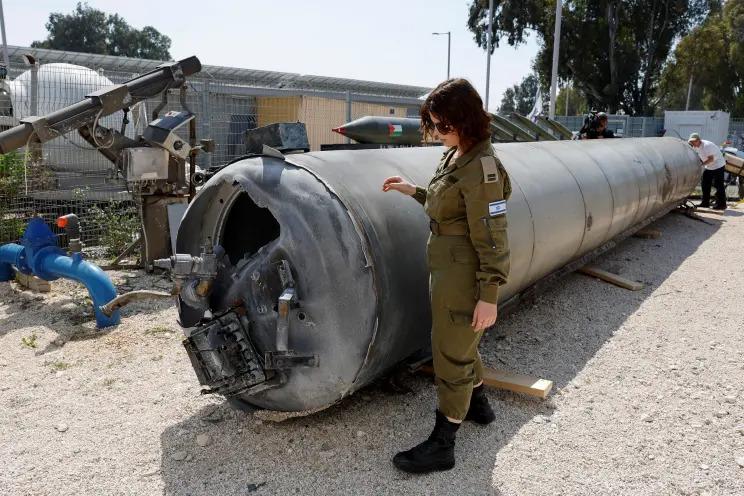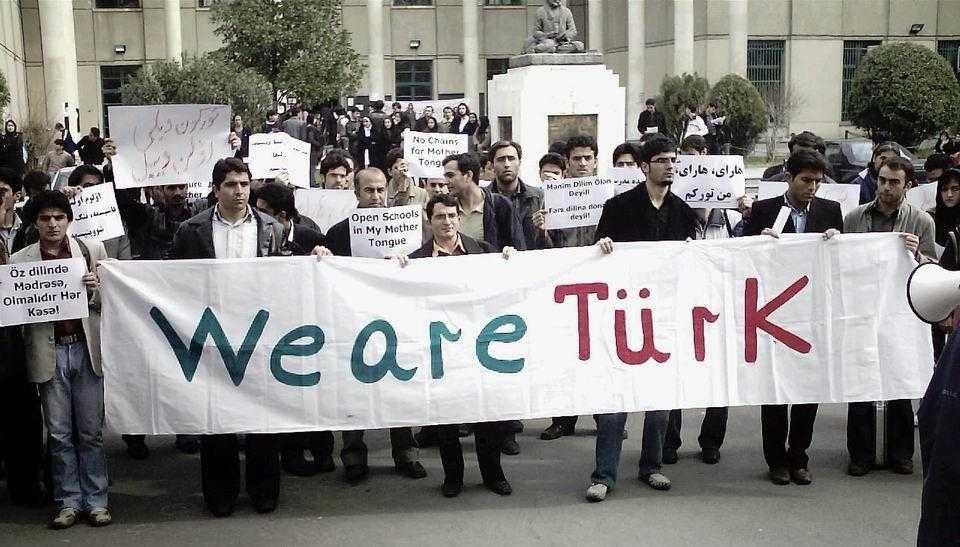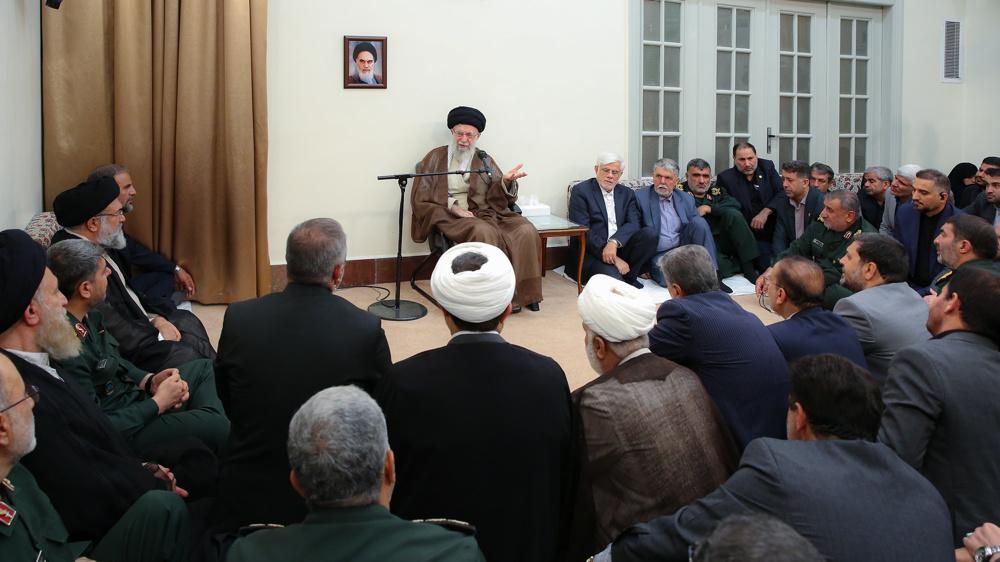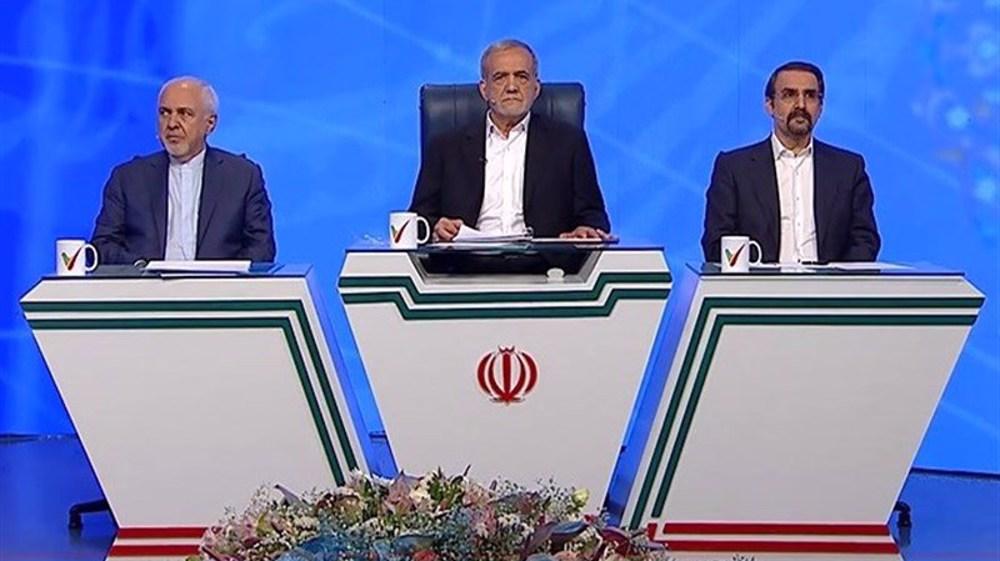Iran’s political instability deepens amid unfulfilled threats & internal strife Powder keg of tension
The situation in the Middle East has remained perilously tense, particularly since the assassination of Ismail Haniyeh, the chief of Hamas' political bureau, on July 30, 2024, in Tehran. This event, which took place in a heavily guarded government compound, has further fueled the already volatile conflict between Tehran and Tel Aviv. The assassination has led to an outpouring of threats and bold statements from various Iranian political and military leaders, yet these have not translated into significant action.
This ongoing pattern of rhetoric without corresponding deeds reflects a deeper complexity within Iran's internal and external dynamics, as the nation grapples with external pressures and internal discontent.
West’s calculated stance
The West, particularly the United States, has responded to the escalating tensions by backing Israel and amassing weapons and jets in the region to deter any potential Iranian attack. This display of military might is a clear signal to Tehran, emphasizing the Western alliance's commitment to Israel's security.
The diplomatic maneuvering extends beyond military posturing; the troika of Western powers has engaged in direct contact with Iranian President Masoud Pezeshkian, urging restraint despite his limited role in the ultimate decision-making process, which lies with Iran’s Supreme Leader.
Iran’s strategic restraint
Iran’s failure to respond decisively with missile or drone strikes following the assassination of Haniyeh raises questions about its strategic calculus. Despite the public bluster, Tehran's restrained response may reflect a recognition of Israel's overwhelming military superiority and the regime's need to avoid a direct confrontation that could prove disastrous.
Iran’s military response in April 2024, following the killing of seven high-ranking Iranian officers in Syria, was similarly lackluster, with only minor damage inflicted on Israeli targets. This pattern of ineffective retaliation highlights Tehran’s awareness of the limits of its military capabilities compared to Israel's advanced military technology and superiority.

The illusion of resistance
On the domestic front, newly elected President Masoud Pezeshkian faces significant challenges as he attempts to form his cabinet amidst parliamentary bargaining. His opponents, particularly from conservative circles, have intensified their campaign against him, with Iran’s conservative media outlets mocking his cabinet choices and questioning his ability to lead.
Pezeshkian’s struggle is emblematic of the broader discontent within Iran, where worsening living standards, lack of basic rights, and the government's focus on foreign proxies over domestic welfare have fueled public dissatisfaction.
The Iranian regime’s continued financial support for various proxy groups across the region has also come under scrutiny from its own population. Many Iranians question the rationale behind pouring millions of petrodollars into these groups, which seemingly offer little in return to the Iranian people.
This support is part of Tehran's broader strategy of maintaining influence in the region, yet it increasingly appears out of touch with the needs and desires of its citizens. The regime’s inability to garner grassroots support is exacerbated by its reliance on empty rhetoric and promises that fail to address the pressing issues facing ordinary Iranians.
Ethnic issues: Unfulfilled promises and growing discontent
Ethnic tensions within Iran further complicate the regime’s domestic challenges. Various ethnic groups in the country have long harbored ambitions for greater autonomy and rights, yet the regime’s policies have done little to address these aspirations.

Instead, the government’s approach has often been one of marginalization and token gestures, leaving these groups disillusioned and increasingly vocal in their demands for change. This growing discontent among ethnic minorities adds another layer of complexity to the regime’s efforts to maintain stability and control.
Pezeshkian’s difficulties in forming a government highlight the intricate web of personal and group interests that define Iranian politics. His complaints about the obstacles he faces in selecting his cabinet are not without merit, as conservative factions seek to undermine his authority and retain control over key areas of governance.
These internal power struggles are a reflection of the broader challenges facing Iran, where nearly four decades of Western sanctions have disproportionately impacted the populace while leaving the ruling elite relatively unscathed.
The public’s expectations for Pezeshkian are high, especially in light of the profound dissatisfaction with the regime's handling of domestic affairs. The worsening economic situation, coupled with a lack of basic rights, has led to widespread disillusionment with the government.
The conservative media's sarcastic remarks about Pezeshkian's cabinet choices, including the suggestion that he should have included his opponents to deflect blame for potential failures, underscore the deep divisions within the political establishment.
Khamenei’s rhetoric: A familiar refrain of resistance
To distract from the growing public discontent, Iran’s Supreme Leader Ayatollah Khamenei has once again turned to familiar rhetoric, warning against enemy psychological warfare and calling for intensified efforts in the cultural field.
However, these statements, which hark back to the era of the Iran-Iraq War, have lost much of their resonance with a populace more concerned with immediate economic and social issues than with abstract notions of resistance. The Leader’s emphasis on relying on domestic capabilities and downplaying the power of external enemies rings hollow in light of the regime’s ongoing failures to address the country’s pressing needs.

Khamenei’s calls for reliance on domestic capabilities are particularly ironic given the recent unveiling of Iran’s latest military products, which have been widely regarded as underwhelming. Despite the country’s vast natural resources, Iran’s military-industrial complex remains underdeveloped, a fact that underscores the regime’s broader mismanagement of the nation’s potential. This disconnect between the regime’s rhetoric and the reality of its capabilities further erodes its credibility, both at home and abroad.
As Pezeshkian navigates the challenges of his presidency, including the recent resignation of his strategic deputy Mohammad Javad Zarif, the path ahead appears fraught with difficulties.
Zarif’s resignation, ostensibly in protest against Pezeshkian’s cabinet choices, highlights the internal discord within the reformist camp. Although Zarif has publicly voiced his support for Pezeshkian, his departure is a blow to the new president’s efforts to build a cohesive and effective government.

The aftermath of Haniyeh’s assassination
Returning to the central issue of Tehran’s response to the assassination of Ismail Haniyeh, the Iranian leadership has issued a flurry of statements warning of severe repercussions for Israel.
Iranian Speaker of Parliament Mohammad Baqer Ghalibaf has declared that Israel will pay a “heavy price” for its actions, while other officials, including representatives of the Hamas movement in Iran, have echoed these sentiments.
Yet, as history has shown, these threats often remain just that - threats. The Iranian regime’s pattern of issuing bold statements without following through with concrete action suggests a strategic preference for rhetorical posturing over actual confrontation, likely to avoid provoking a full-scale conflict with Israel.
Iran’s perilous balancing act
In conclusion, Iran’s current predicament is marked by a delicate balancing act between maintaining its position as a regional power and addressing the growing discontent within its borders.
The regime’s reliance on rhetoric and symbolic gestures, both in its foreign and domestic policies, is increasingly being challenged by the harsh realities of its limitations. As Tehran continues to navigate the fallout from Haniyeh’s assassination and the broader tensions with Israel, it remains to be seen whether its leaders can successfully manage the competing pressures they face or if these challenges will ultimately overwhelm them.








